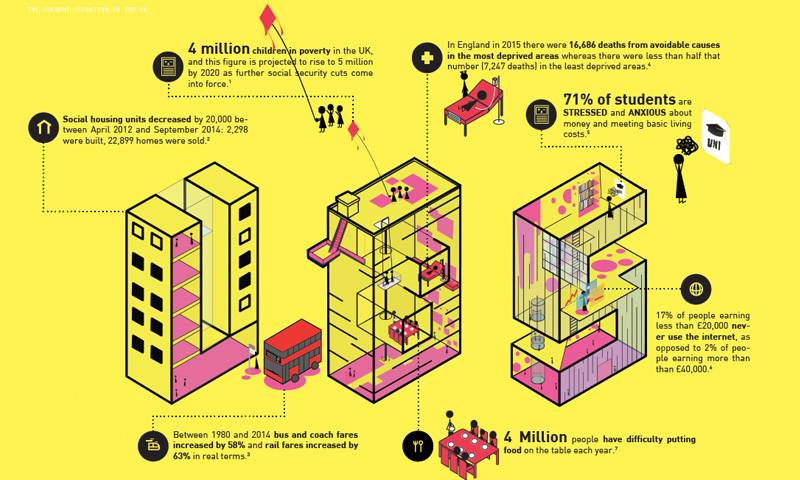New report says UK needs to rethink the welfare state for 21st-century challenges.

How the UK’s welfare model functions and how it is funded needs a radical rethink if it is to be fit for purpose this century, finds a 2017 report published by the Social Prosperity Network at the UCL Institute for Global Prosperity (IGP).
The report proposes ‘Universal Basic Services’ (UBS) as an affordable alternative to a so-called ‘citizens’ income’ (or ‘Universal Basic Income’) advocated by some economists. The UBS approach builds on the same ethos that established the NHS and public education – that essential services should be free at the point of delivery. The recommendations include a massive expansion of social housing, free bus travel, meal provision for those most at risk of food insecurity and basic phone and internet access.
The total cost of £42bn – representing 2.3% of UK GDP – could be fully funded through changes to the Personal Allowance, making the proposal fiscally neutral, says the report. Those in the lowest income decile would benefit the most – saving the equivalent of £126 per week in costs as a “social wage” if they accessed all the basic services. Focusing on more comprehensive provision of services rather than giving cash handouts also means there remains a strong incentive for citizens to work.
IGP Director, Professor Henrietta Moore, says: “As a society, we already accept that certain services like health and education should be provided free at the point of delivery to the whole population, because we understand that all of society benefits as a result. The concept of UBS is a logical extension of this principle.”
 Close
Close

